Authors on Reviews: A First-Timer Reveals How It Feels
An author recalls his reaction to reviews of his first book.
Jump to navigation Skip to content
Articles from Poet & Writers Magazine include material from the print edition plus exclusive online-only material.
An author recalls his reaction to reviews of his first book.

The ninth novel and eighteenth book by Harry Mark Petrakis, who turns 80 on June 5, will be published by Southern Illinois University Press in the same month. Twilight of the Ice is set in the Chicago railyards, in the blue-collar, industrial neighborhoods of the early 1950s. In this elegy to a rough crew of railroad car icemen facing obsolescence in the advent of modern refrigeration, the Chicago author who was twice shortlisted for the National Book Award again finds nobility in the struggles of immigrants and working people.
Colum McCann's most recent novel, Dancer, published by Henry Holt in January, reimagines the life and the international milieu surrounding the Russian ballet dancer Rudolf Nureyev, who died in 1993.
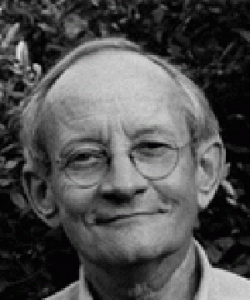
Careful storytelling, along with careful marketing, has helped American Lives—the memoir series at the University of Nebraska Press—attract the attention of talented authors, national reviewers, and bookstore sales reps.
When James Merrill died in 1994, he willed his large, turn-of-the-century house on Water Street to the Borough of Stonington, Connecticut. The village improvement committee was free to use the building any way it desired; Merrill made no stipulation in his will. But the National Book Award–winning poet had been an important figure in the village's ongoing literary tradition. The committee decided to keep Merrill's legacy alive by creating a writer-in-residence program. Since 1996, a lucky poet or scholar has lived, for either six months or a full year, in Merrill's curious home across from the harbor. Writers chosen for residency are notified more than a year in advance. Several Merrill House residents have reported "the happiest period of my life," surrounded by Merrill's books and knickknacks, far removed from the snarl of city life—Boston, New York, or Louisville, in our case.

During the past year, poets laureate have been the unlikely recipients of national media attention. New Jersey's Amiri Baraka was excoriated for reading a poem that some labeled anti-Semitic, and California's Quincy Troupe resigned after inaccuracies were discovered on his resumé. With their public profiles growing, the role of poets laureate is being called into question. In April the nation's first conference for state poets laureate will convene in Manchester, New Hampshire, where they will discuss poetry and their responsibilities as public representatives of their art.
Anthologies compiled annually by editors who scan diverse sources and publish the poems they deem “the best,” are quickly gaining popularity worldwide. The latest of these is an online publication called Best New Zealand Poems.

To coincide with National Poetry Month, the Library of America, a nonprofit publisher of American classics, will launch the American Poets Project, a new series of books devoted to individual poets and anthologies exploring particular themes, genres, and eras.
Literary MagNet chronicles the start-ups and closures, successes and failures, anniversaries and accolades, changes of editorship and special issues—in short, the news and trends—of literary magazines in America. This issue's MagNet features Rosebud, Pleiades, Fizgig, American Letters & Commentary, Shiny, Brevity, and Canary River Review.
In 1995 Brian Henry joined forces with Andrew Zawacki to resurrect Verse magazine. In 2000 he elicited the help of Matthew Zapruder and co-founded Verse Press. Along the way Henry, an assistant professor of English and director of the creative writing program at the University of Georgia, established a broad international reputation, both for his editorial and critical efforts, and for his sizable creative output.
In the last decade programs in Translation Studies, designed to train students in the theory and practice of literary translation, have flourished in American and European universities. Still, translators remain concerned about the future of their profession, fearing it will be undermined by a number of serious threats: English as a global language, computer translation, and the reluctance of publishers, at least in the English-speaking world, to take on the costs of publishing translations.
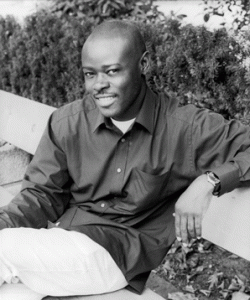
Helon Habila read novels as a boy to shelter himself from the brutal reality of his country’s political instability. Now, the author of Waiting for an Angel believes his generation of Nigerian novelists should help change that reality.

British novelist Hong Ying faces a "defamation of the dead" lawsuit in China for her book K: The Art of Love, a fictional portrayal of the love affair between Bloomsbury poet Julian Bell and the celebrated Chinese writer and painter Ling Shuhua.

Last spring I embarked on a modest project. Having photocopied 10 of my favorite poems—by poets living and dead, from several different countries—I stapled them into an anthology and stood on a sidewalk in Times Square, where I read the poems aloud. I had no other gimmicks and no amplification. I did this on several occasions, always bringing a friend along for moral support and to assist in handing out free copies of the anthology, which I titled "Antidote."
Literary MagNet chronicles the start-ups and closures, successes and failures, anniversaries and accolades, changes of editorship and special issues—in short, the news and trends—of literary magazines in America. This issue's MagNet features Verse, Fence, McSweeney's, Open City, Orchid, Two Lines, and the Missouri Review.
Naropa University has established the Naropa Audio Preservation and Access Project to archive the program's vast holdings of recorded readings, lectures, panel discussions, and workshops.
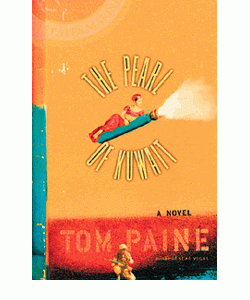
Literary MagNet chronicles the start-ups and closures, successes and failures, anniversaries and accolades, changes of editorship and special issues—in short, the news and trends—of literary magazines in America. This issue's MagNet features New Letters, Brick, The Ohio Review, 96 Inc, Poetry Review, Gloss, and Explorations.
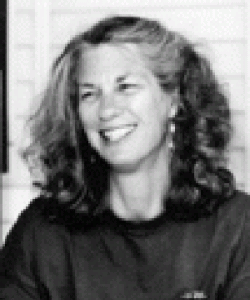
Alice James Books has published about 130 books by an eclectic list of poets including Jane Kenyon, Fanny Howe, B.H. Fairchild, Timothy Liu, and Rita Gabis, and it will celebrate its 30th anniversary with a yearlong schedule of events in 2003.

Two thousand years after it was destroyed by fire, the Bibliotheca Alexandrina—the mythic Egyptian library that at one time boasted a universal collection of everything ever written—as reopened to the public on October 16.

After finishing About a Boy by Nick Hornby, a reader in New York City left it on a Starbucks magazine rack with hopes that someone would pick up the novel and read it. Two days later a reader from Delta, British Columbia, found the book, took it back to Canada, read it, and left it in the waiting room of a dentist's office, where it found its way into the hands of another local reader. The tracking of such a literary journey is made possible by a unique online book club called BookCrossing.com.
The task of bringing literature into another language means transporting an entire culture, its shame as well as its triumphs.
Less than a year after his third novel, The Corrections, was awarded the National Book Award for fiction, Jonathan Franzen is back with a new collection of nonfiction.
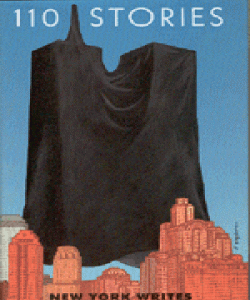
Over three hundred poems, short stories, and essays written in response to the events of last September have been collected in three new anthologies: September 11, 2001: American Writers Respond, Poetry After 9/11: An Anthology of New York Poets, and 110 Stories: New York Writes After September 11.

Black Sparrow Press, based in Santa Rosa, California, began in 1966 as a vehicle for John Martin to publish the work that he loved, but went on to become a financial success. It published more than 650 titles, with annual sales eventually rising to more than $1 million, which is why it came as a surprise to many in the publishing industry when Black Sparrow went out of business last spring.